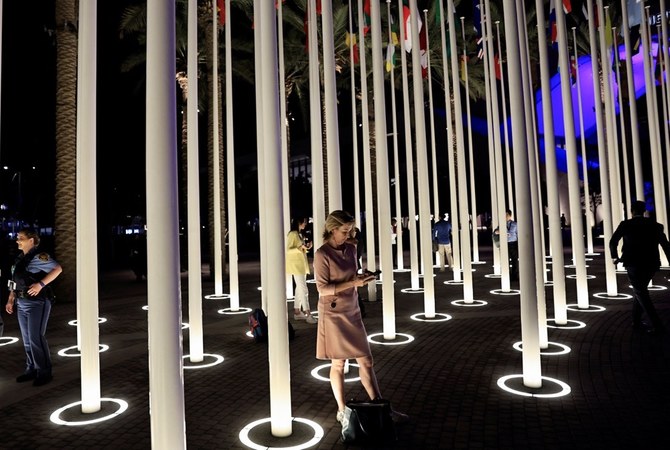COP28 is inclusive and getting things done

https://arab.news/yc63h
While there were a lot of jibes in member countries of the Organisation for Economic Co-operation and Development and among the NGO community for holding COP28 in UAE due to the country being a major oil producer.
This COP is unique in the sense that it is for the first time inclusive. Climate change is a global problem requiring global solutions from all sectors. In that sense it is important to have the oil and gas industry present, because they are an integral part of the solution to the climate crisis. Let us not forget that by 2050 developing nations, which will grow by 2 billion people, will need to lift hundreds of millions out of poverty into the middle classes. In order to achieve this goal, all sources of energy are required. We need a just energy transition, which may look different in Uganda from the UK. If we want to solve a global problem, we need to gather everyone around the table, in terms of countries and industries.
The oil and gas sector has a vital role to play in terms of providing energy. The industry is also decarbonizing itself. Saudi Arabia and the UAE are producing oil barrels with the lowest carbon intensity in the world. They are also way ahead on research, development and implementation of carbon removal technologies such as CCUS. The enemy here is CO2 and not oil and gas per se. Net zero does not necessarily mean zero carbon.
The US and the EU have pledged $5.5 billion to slash greenhouse gases, which brings us back to renewables, carbon removal technologies and reducing methane emissions. Big oil companies such as Exxon and Saudi Aramco have signed up to the initiative.
This brings me to the most important achievements we have seen coming out of COP28 so far: The climate debate has also a North-South dimension. The poorest countries in the world in Africa and Asia are among the worst affected by climate change. They also emit the least amounts of carbon dioxide. The continent of Africa accounts for 4 percent of the global CO2 emissions and Pakistan for just 1 percent. Yet it is these parts of the world that suffer disproportionately from droughts, floods and other climate-induced natural disasters.
COP28 has achieved more for the Global South during the first few days than most preceding COP conferences. In 2009, the parties agreed in Copenhagen that developed nations would contribute $100 million a year for climate action in developing nations by 2020. The timeframe was extended to 2025. However, 2023 is the first year that the developed countries actually lived up to their commitments.
On day 1, COP28 announced a fund, which aims to compensate the most vulnerable countries for loss and damage from climate-induced natural disasters. Nearly 200 countries agreed in COP 27 on the broad terms of the vehicle. It now exists and will be managed by the World Bank. So far, $400 million has been pledged by the UAE, the US, the UK, Germany, Japan, and others.
At last but not at all at least there were other commitments. On Nov. 10, ahead of COP28 the Arab Coordination Group announced that it will allocate $50 billion to help build resilient infrastructure and inclusive societies on the African continent. The AGC comprises the Islamic Development Bank and various multilateral and national institutions such as the OPEC Fund for Development, the Abu Dhabi Fund for Development and others The AGC will scale up financial assistance in line with the Paris Climate agreement in order to fill investment gaps, which is direly needed that the continent has roughly 700 million people living in energy poverty.
It is impressive that there were results on day one (and in the case of the AGC, even before the start of COP). The world seems to have come to an understanding that we live in one world and we need to support the developing nations for many of them bear the brunt of climate change while having contributed very little to global CO2 emissions. Hopefully, we will now be on the way toward a just energy transition.
Cornelia Meyer is a Ph.D.level macroeconomist, energy expert and CEO of Meyer Resources, a business consultancy.









































